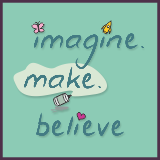
Your eye is amazing- and here is ten random facts about them!
- Your eyelids and eyelashes help protect your eyes from dust, dirt and germs from entering them.
- Your eyeball is as big as a ping-pong ball.
- Your eye sees an image upside down, so your brain flips the image the right way up.
- Tears are made of water, chemicals and oil.
- If your cornea and retina do not work together your vision will be blurry.

- Eye muscles move more than 100,000 times a day.
- The cornea, the visible part of your eye, is the only part of your body that should not contain any blood.
- Your eye has a jelly-like coating, scientifically named vitreous humour, that moulds your eyeballs into a round, spherical shape.
- 32% of the world’s population have blue or grey irises,12% of the world’s population have green or light brown irises and 25% of the world’s population have dark brown irises.
- Your eye uses cells called rods, which sees gray-scale, and cones, which see colours. 1 eye has about 120 million rods and 7 million cones.







